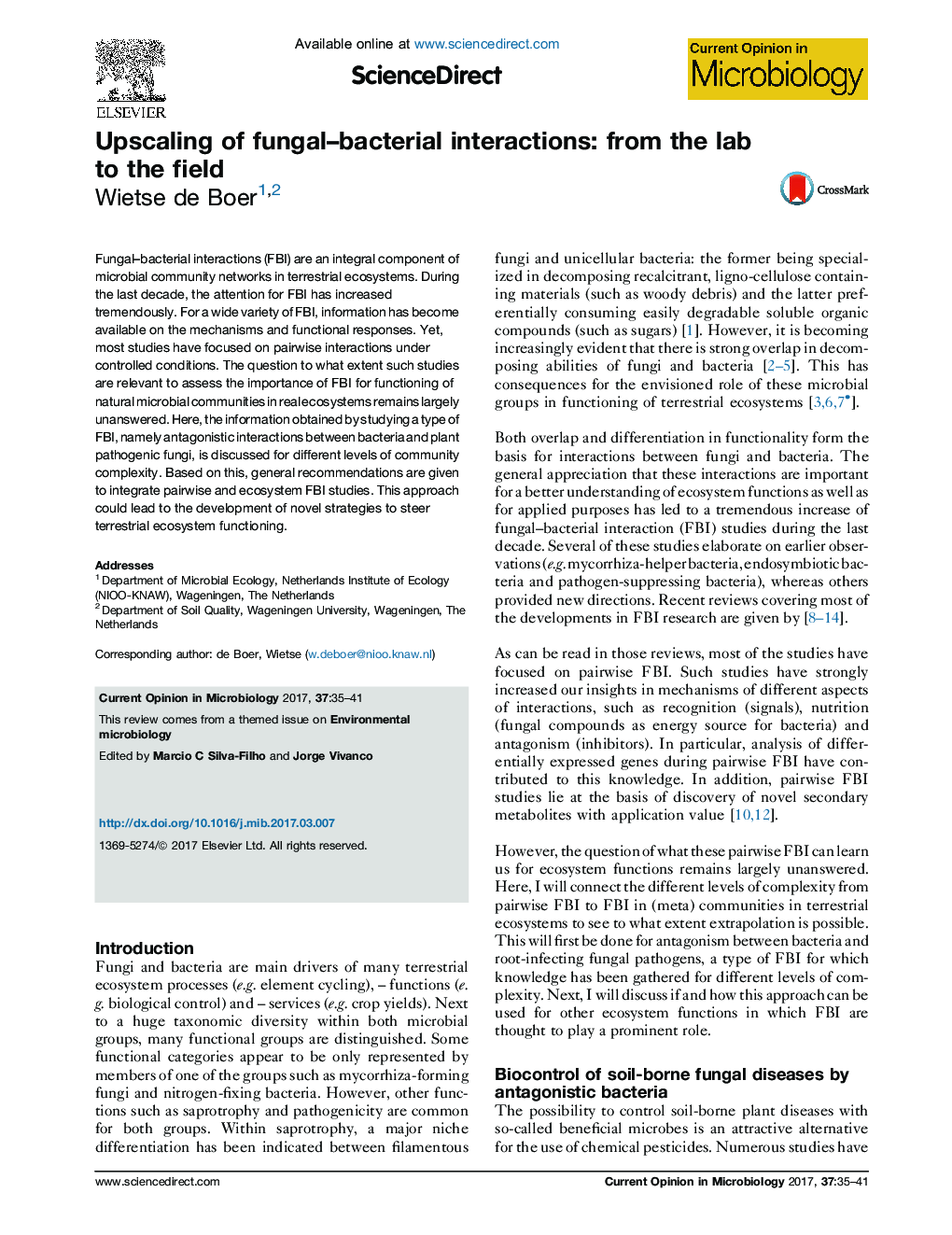| Article ID | Journal | Published Year | Pages | File Type |
|---|---|---|---|---|
| 5671718 | Current Opinion in Microbiology | 2017 | 7 Pages |
â¢The outcome of fungal-bacterial interactions is context dependent.â¢No direct extrapolation of pairwise interactions to community interactions.â¢Suppression of fungal pathogens by bacteria enables integration of different levels of FBI complexity.â¢Pairwise interactions form the basis for finding general mechanisms operating in communities.
Fungal-bacterial interactions (FBI) are an integral component of microbial community networks in terrestrial ecosystems. During the last decade, the attention for FBI has increased tremendously. For a wide variety of FBI, information has become available on the mechanisms and functional responses. Yet, most studies have focused on pairwise interactions under controlled conditions. The question to what extent such studies are relevant to assess the importance of FBI for functioning of natural microbial communities in real ecosystems remains largely unanswered. Here, the information obtained by studying a type of FBI, namely antagonistic interactions between bacteria and plant pathogenic fungi, is discussed for different levels of community complexity. Based on this, general recommendations are given to integrate pairwise and ecosystem FBI studies. This approach could lead to the development of novel strategies to steer terrestrial ecosystem functioning.
